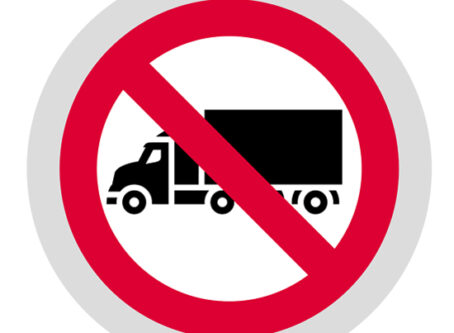Virginia truck toll study now includes passenger vehicles
Ongoing discussions about a truck-only toll continued on Oct. 29 with the Virginia Commonwealth Transportation Board. The second-to-last meeting before a final report is made sheds some new light on the Interstate 81 corridor project, including tolls that expand to passenger drivers.
In April, Gov. Ralph Northam signed SB 971, which directs the transportation board to study financing options for I-81 corridor improvements. The bill allows the board to consider a truck toll, but bars the board from considering tolls on commuters.
That study was launched in May. Since then, there have been eight public meetings and three board meetings. The latest board meeting in October gives Virginians and truckers a better idea of what to expect in the final proposal to the General Assembly. After analyzing problem areas, VDOT found $4 billion worth of improvement packages. However, the draft report presented in October narrowed that price tag down to $2 billion.
Truck tolls
The Virginia Department of Transportation looked into tolling as a potential financing option. As legislation prohibited a toll on commuters, VDOT explored truck tolls.
According to a presentation during October’s transportation board meeting, six toll gantries could be proposed, spaced out 40 to 60 miles. Toll rates for trucks would be less than 17 cents per mile. One board member noted that 17 cents would be among the lowest in the country, with the average truck toll across the nation at 24 cents and some states with a much higher rate.
However, VDOT Deputy Secretary of Transportation Nick Donohue also proposed a passenger vehicle toll in addition to the truck toll. Passenger vehicles would pay a toll rate one-third to two-thirds of the truck rate.
Although legislation will not allow a commuter toll, it does allow a toll on passenger vehicles. The difference is whether or not a vehicle has an I-81 commuter pass. For an annual fee not to exceed the price of a single round trip on the full length of I-81 ($20 to $30), commuters can get unlimited access to the corridor toll-free. Vehicles without the pass would be considered noncommuters and would have to pay the full toll rate.
If tolls are approved on I-81, they would have a variable rate. Higher rates will be charged from approximately 6 a.m. to 9 p.m., encouraging more efficient use of the corridor, including potential shipping of goods overnight.
The switch from truck-only tolls to shared motorist tolls came to little surprise to Bert Dodson Jr., board member representing the Lynchburg district, who has attended six public meetings.
“I am now hearing that citizens are saying ‘We’re willing to pay,’” Dodson said.
Dodson went on to say that truckers are willing to do their part, but their part is not 100 percent and local citizens must have some form of buy-in. According to Dodson, citizens agree.
Economic impact of truck tolls
VDOT also had to conduct an Economic Impact Analysis, including the impact of heavy commercial vehicle tolls on Virginia agriculture, manufacturing and logistics sectors. The analysis assumes a 17-cent toll, although a smaller toll rate is expected.
The analysis concluded that the $2 billion in investments being proposed will generate improved traffic conditions in the corridor, thus reducing the cost of doing business for trucking companies. VDOT predicts that between 2020 and 2040, $4.6 billion in reduced costs will be realized for companies serving Virginia-based industries. With trucking companies expected to pay $3.2 billion in that time frame, truckers would experience a net reduction in costs of up to $1.4 billion over 40 years.
Reduced costs include travel time savings, operations costs saving through less fuel spent, less overtime payments to drivers and less out-of-pocket costs related to crashes. The analysis considers only trucks doing business in Virginia, not those passing through.
Truck parking
The I-81 corridor improvement plan will also look into the truck parking problem. Donohue estimates that the state is short about 1,000 parking spots. He acknowledged that some may consider that number conservative, but it is a number Donohue is comfortable putting out there based on driver surveys.
According to survey results, truckers prefer private rest areas with long-term parking (76 percent of respondents) to public rest areas with short-term parking (56 percent). In fact, the private-to-public rest area ratio on I-81 in Virginia is 9-to-1.
Donohue appeared to be informed about the realities of a truck parking shortage.
“How can we maximize the ability for these truckers to utilize their hours of service so that people aren’t having to stop for two hours before they are going to run out of time because of uncertainty about the availability of parking when they might run out of hours?” Donohue asked the board.
VDOT recommended that a Truck Parking Solution Task Force be established. Donohue also mentioned the implementation of a mobile app informing drivers of parking availability, including a reservation system. Lastly, VDOT wants to investigate opportunities to fund expansion of public/private truck parking in targeted locations.
From here, the Commonwealth Transportation Board has one last meeting on Dec. 4-5. During the final meeting, the board will consider a final report. Per legislation, a final report must be submitted to the General Assembly no later than the first day of the 2019 regular session on Jan. 9.









